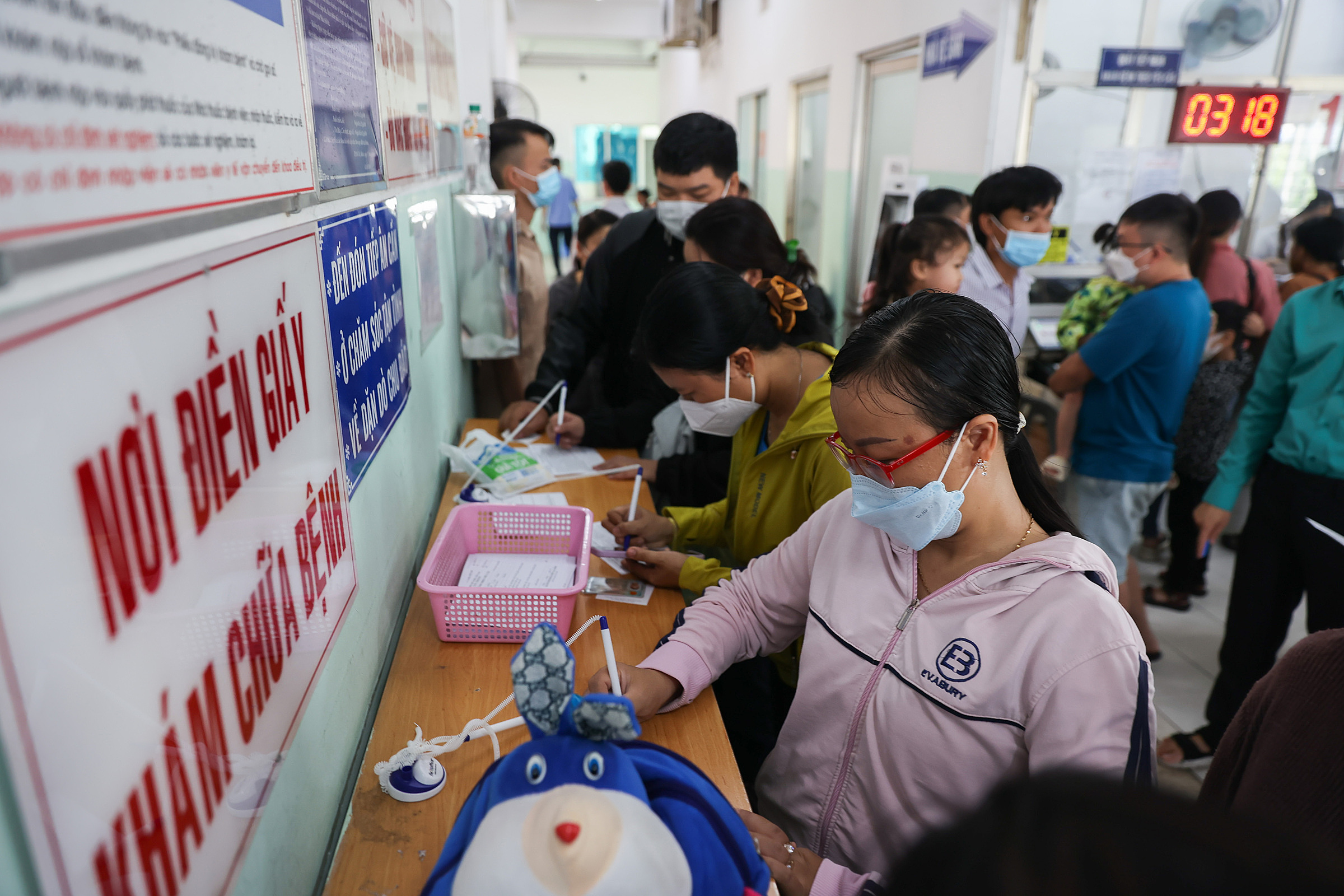Despite having health insurance, Thanh has long opted for private healthcare to see the surgeon who previously operated on him and avoid long queues. This time, he was surprised to learn that, starting 1/7/2025, health insurance partially covers private healthcare costs. He booked an appointment with a professor for 500,000 VND, a portion of which would be covered by insurance.
"Private healthcare is more convenient and saves time. Now, with partial insurance coverage, the cost feels justified," Thanh said, providing two million VND as a deposit, with any remaining balance to be settled after the consultation.
Private healthcare, also known as on-demand care, is a premium service with higher costs traditionally not covered by health insurance. Patients can choose their doctor – from professors and doctors of philosophy to department heads and specialists – and receive personalized, prioritized care at varying price points.
 |
A patient at Bach Mai Hospital. Photo: The Anh |
A patient at Bach Mai Hospital. Photo: The Anh
Thanh's experience is becoming increasingly common at major hospitals like Bach Mai and Viet Duc. Dang, a 39-year-old from Thanh Hoa, has had health insurance for 10 years but still prefers private care at Bach Mai. Private consultation fees range from 300,000 to 400,000 VND, depending on the doctor's qualifications, compared to 50,600 VND for standard insured visits.
"I work far away and don't have time to wait. Before, private visits were out-of-pocket, so the partial insurance coverage is a welcome surprise," Dang shared, adding that while the support isn't substantial, it adds up for frequent patients.
Previously, private healthcare was not covered by health insurance. However, this changed with the amended Health Insurance Law, effective 1/7/2025, and Decree 02, which details its implementation.
Doctor Tran Thai Son, deputy head of the Planning and Synthesis Department at Bach Mai Hospital, considers the new policy beneficial, enabling more people to access quality healthcare while retaining insurance benefits.
The insurance fund covers all eligible costs, including medicine, technical services, and maximum bed fees, within a defined price range. Patients pay the difference for services exceeding that range.
For example, the standard consultation fee at Bach Mai is 50,600 VND. A private consultation with a Master's degree holder or a level-one specialist is 300,000 VND. The patient would pay the 249,400 VND difference. The health insurance fund covers the remaining 50,600 VND, based on the patient's coverage (e.g., 80%, 95%, or 100%). The patient only co-pays the remaining portion, if any.
According to Dr. Son, there is no "on-demand medicine." If a medication is covered by health insurance, patients receive full benefits regardless of whether they choose standard or private care.
 |
Patients at the Hospital for Tropical Diseases in Ho Chi Minh City. Photo: Quynh Tran |
Patients at the Hospital for Tropical Diseases in Ho Chi Minh City. Photo: Quynh Tran
Vu Nu Anh, deputy head of the Health Insurance Department at the Ministry of Health, confirmed that patients receiving private healthcare are covered within the defined benefits. Patients pay the difference between the service cost and the insurance payment directly to the healthcare facility.
"Hospitals must be transparent about out-of-pocket costs, ensuring patients understand their rights," Anh said.
Patients simply need their electronic health insurance card, paper card, or valid insurance code and identification for service.
Children under 6 only need their health insurance card or code. If they don't have a card, they need an original or copy of their birth certificate or birth extract.
By the end of 2023, Vietnam had approximately 93.6 million people enrolled in health insurance, covering almost 93.35% of the population. By the end of June 2024, approximately 89.552 million health insurance visits were recorded, a 7.91% increase compared to the same period in 2023.
The amended Health Insurance Law, effective 1/7/2025, extends health insurance benefits to private healthcare, removes administrative boundaries for treatment, and expands coverage to include home-based and remote care.
Le Nga












